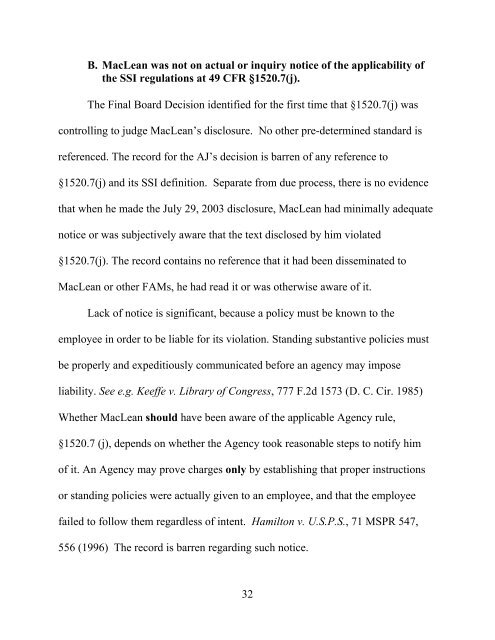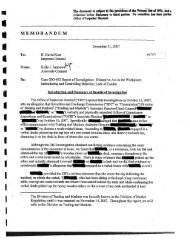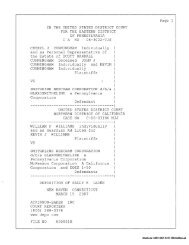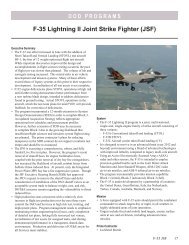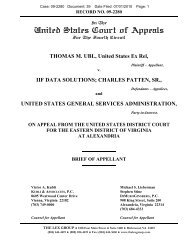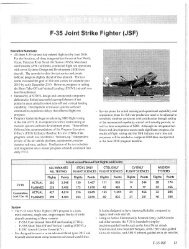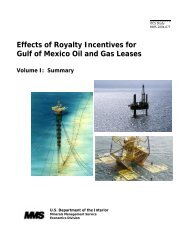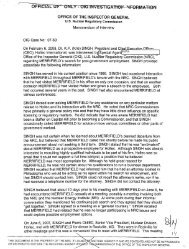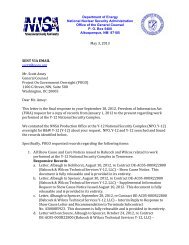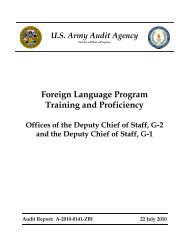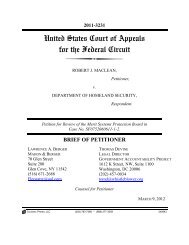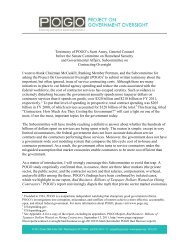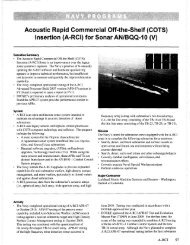United States Court of Appeals for the Federal Circuit
United States Court of Appeals for the Federal Circuit
United States Court of Appeals for the Federal Circuit
You also want an ePaper? Increase the reach of your titles
YUMPU automatically turns print PDFs into web optimized ePapers that Google loves.
B. MacLean was not on actual or inquiry notice <strong>of</strong> <strong>the</strong> applicability <strong>of</strong><br />
<strong>the</strong> SSI regulations at 49 CFR §1520.7(j).<br />
The Final Board Decision identified <strong>for</strong> <strong>the</strong> first time that §1520.7(j) was<br />
controlling to judge MacLean’s disclosure. No o<strong>the</strong>r pre-determined standard is<br />
referenced. The record <strong>for</strong> <strong>the</strong> AJ’s decision is barren <strong>of</strong> any reference to<br />
§1520.7(j) and its SSI definition. Separate from due process, <strong>the</strong>re is no evidence<br />
that when he made <strong>the</strong> July 29, 2003 disclosure, MacLean had minimally adequate<br />
notice or was subjectively aware that <strong>the</strong> text disclosed by him violated<br />
§1520.7(j). The record contains no reference that it had been disseminated to<br />
MacLean or o<strong>the</strong>r FAMs, he had read it or was o<strong>the</strong>rwise aware <strong>of</strong> it.<br />
Lack <strong>of</strong> notice is significant, because a policy must be known to <strong>the</strong><br />
employee in order to be liable <strong>for</strong> its violation. Standing substantive policies must<br />
be properly and expeditiously communicated be<strong>for</strong>e an agency may impose<br />
liability. See e.g. Keeffe v. Library <strong>of</strong> Congress, 777 F.2d 1573 (D. C. Cir. 1985)<br />
Whe<strong>the</strong>r MacLean should have been aware <strong>of</strong> <strong>the</strong> applicable Agency rule,<br />
§1520.7 (j), depends on whe<strong>the</strong>r <strong>the</strong> Agency took reasonable steps to notify him<br />
<strong>of</strong> it. An Agency may prove charges only by establishing that proper instructions<br />
or standing policies were actually given to an employee, and that <strong>the</strong> employee<br />
failed to follow <strong>the</strong>m regardless <strong>of</strong> intent. Hamilton v. U.S.P.S., 71 MSPR 547,<br />
556 (1996) The record is barren regarding such notice.<br />
32


